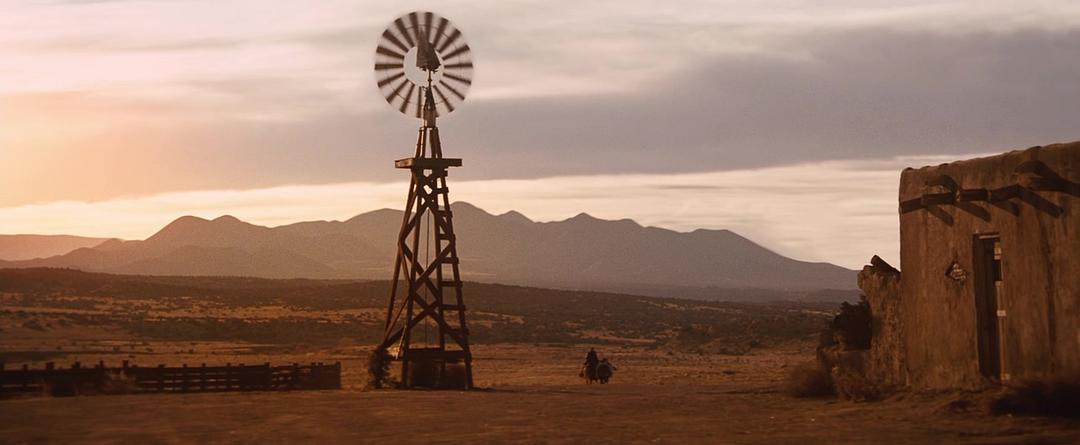對里面的一小段臺詞印象深刻
維吉爾,我有些話要說,留在這的話,我是活不下去的。維:我知道.
這段臺詞很簡單,但雙方就此明確各奔前程。

敘事風格含蓄、簡練,與中國水墨畫韻味相似,多留白、重神韻而非形似。
Allie的人物本質其實在出場時就已埋下了伏筆,即借由Virgil之口說出的“這的單身女人沒幾個不是妓女的”。因為在那時的西部,女人,要么嫁人從此有個依靠好活下來,要么當妓女輕輕松松也能吃穿不愁,不嫁人也不當妓女還要在強盜頻出的西部活下來實在難。不過,嫁人的話丈夫可能沒落可能身死;做雞沒有自由沒有地位。所以Allie的厲害就體現出來了,她結合了這兩條路然后取優點去缺點創出了第三條路——高級妓女

It seems boorish of any viewer to denigrate this well-intended, gentle, and (painfully) light film. But so be it.
Ed Harris is a good actor possessing a limited yet effective range of characterization. He is what you may call a he-man, associated in most movie-goers' mind with machismo and perhaps suspected of some of its excesses, like male chauvinism. Here in this film Harris proves that suspicion to be unfounded: he's nothing if not sympathetic to the heroine, whose loyalty to her male companion ever so dynamically tracks the ebbing tide of his king-of-herd status, and who will not bat an eyelash to abandon him for the next head dog. Harris's gentleness in handling her character is proof, in my opinion, of a larger, more endearing manhood.

當然,我這個題目有點偏激,并且,即便女人在擇偶時更傾向于強者,而大多數男人都只能處于弱勢的地位,但卻沒有幾個女人愿意承認自己只需要一匹種馬,同時也沒有幾個男人愿意承認自己就是弱者。
女人擇強而事有幾個好處:
一是尋求可靠的保護,弱者自身難保,而依賴強者自然比依賴弱者安全,所以艾麗說她只與林做,因為他“in charge”;
二是享受更高質量的生活,強者占有更多更好的資源,所以艾麗選擇了布拉格,因為他“搶到了一火車黃金”;
三是滿足自己的虛榮心,不是隨便什么女人都可以得到強者的青睞的,如果某人得到了,她便會認為自己比其它女人出眾,而“出眾”正是女人夢寐以求的,所以艾麗傾心于維吉爾,因為他是鎮上人物。
男人也喜歡有這種女人在身邊,關鍵不在于她們漂亮、優雅、迷人什么的,最關鍵的是她是一張標簽,可以鑒定一個男人是否強勢和成功。就像王冠可以證明它的佩帶者是國王一樣。

《阿帕魯薩鎮》兄弟如手足,妻子如衣服
轉載請注明網址: http://www.kangshuodianzhi.org/zhonghe/vod-11336.html











